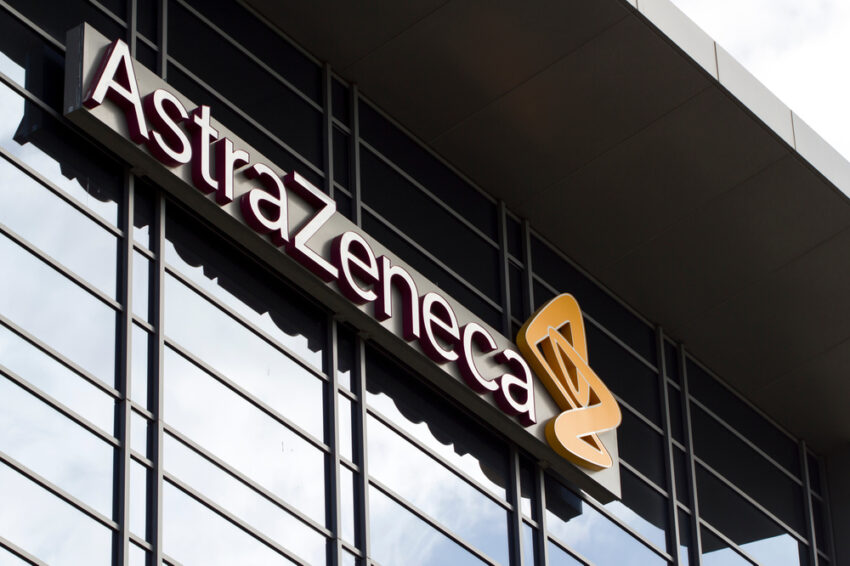
Britain’s uncompetitive fiscal policies have led AstraZeneca to shift plans for a $360 million investment in a new manufacturing facility from Britain to Ireland, the group’s chief executive has revealed.
Sir Pascal Soriot said the pharmaceutical group had wanted to build the new “state-of-the-art” plant close to its existing UK sites in the northwest of England but instead made the investment commitment in Ireland “because the tax rate was discouraging”.
Soriot, 63, said: “You need an environment that gives you good returns and incentive to invest.”
He was speaking alongside strong full-year results today and amid mounting concerns from the life sciences sector over the UK’s operating environment. His comments follow those of Tom Keith-Roach, AstraZeneca’s UK president, who in an interview with The Times warned that Britain was losing out on investment from AstraZeneca to more competitive countries.
Keith-Roach had said that AstraZeneca had not made new research and development capital investments in the UK since 2021, the investment going instead to Ireland, the US, Spain and the Middle East. Its wider R&D spending in the country could also now be at risk, he said.
AstraZeneca and the industry’s concerns centre on a “wildly out of line” NHS-branded medicines sales levy.
Jeremy Hunt, the chancellor, identified life sciences last month as among the UK’s five most important sectors and called for investment in the UK. Government departments were restructred this week, including creating a new department for science, innovation and technology. AstraZeneca said that this alone was unlikely to benefit the industry.
Soriot said Britain’s research base was one of the best in the world “but if you want a life sciences sector you need more than research”.
In order to encourage investment in clinical development, statisticians, regulatory experts, manufacturing and support functions Soriot said access to green energy and a lower corporate tax rate was needed but the tax “unfortunately is going up”. The corporation tax rate is due to increase in April from 19 per cent to 25 per cent.
“And you need to know that the products you’re developing are going to help patients,” Soriot said. “Otherwise you do research but you don’t develop here, you develop in countries where you know your [patients are] going to get access and you’re going get a price that can justify the investment.”
The industry is lobbying strongly for an overhaul of the sales levy, which is estimated to hit £3.3 billion this year, a rate of 26.5 per cent, up from £563 million in 2021, partly driven by increased demand from the pandemic. Talks with the government are due to begin this year.
The Times revealed last month that Soriot and Dame Emma Walmsley, the chief executive of GSK, had privately written to Rishi Sunak to warn that government policy was hitting industry investment decisions.
AstraZeneca is one of Britain’s two big pharma groups, alongside GSK, worth about £174 billion. It employs about 83,000 people globally, including almost 8,000 in the UK. It recently opened a £1.1 billion new global R&D centre in Cambridge as part of an investment decision made years ago.
The company’s warning came as it delivered another strong set of annual results and outlook for the year, which sent its shares up 490p, or 4.6 per cent, to £112.42, back towards recent record highs.
Total revenue rose 25 per cent to almost $44.4 billion at constant exchange rates, with growth across all its therapy areas and boosted by the $39 billion acquisition of the US rare diseases specialist Alexion in 2021. Oncology revenue rose 20 per cent and rare diseases 10 per cent. Pre-tax profits rose to $2.5 billion from a loss of $265 million a year earlier.
Issuing guidance for this year, AstraZeneca said it expected revenue to increase by a “low-to-mid single-digit percentage, or by a “low double-digit percentage”, excluding Covid-19 medicines.
AstraZeneca was among the first companies to produce a successful Covid vaccine and antibody therapy but Soriot said: “As expected, and as all other companies experienced, our Covid-19 medicines are declining, which is a good thing for the world. The impact of the pandemic has subsided.
“We plan to initiate more than thirty Phase III trials this year, of which ten have the potential to deliver peak year sales over one billion dollars. Our R&D success and revenue increase in 2022 demonstrate that we are on track to deliver industry-leading revenue growth through 2025 and beyond, and have set AstraZeneca on a path to deliver at least fifteen new medicines before the end of the decade.”